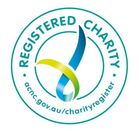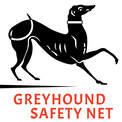Caring for your Greyhound
Greyhounds are bred for speed and athleticism and so are generally a very healthy and robust breed, having none of the inherent health problems which some other breeds experience.
Below are some of the key things to be aware of to keep your Greyhound healthy and happy.
Heat and Cold – Greyhounds have relatively thin skin and little body fat compared to other breeds, this makes them more susceptible to both heat and cold. A Greyhound should wear a warm coat when outside on cold days, and during winter will need one at night. On hot days they must have adequate shade and fresh water. Better yet, ensure your Greyhound can be inside the house whenever the weather is extreme.
Teeth – Like many other long jawed dogs, especially when fed a soft-diet as part of racing, Greyhounds can be susceptible to gum disease and tooth decay. This can be helped by either cleaning their teeth or giving a suitable raw bone to chew. A yearly dental check is recommended.
Lacerations – Greyhounds have very thin skin and so can be extremely susceptible to cuts and lacerations. If it's a small laceration you can bathe it in a mild solution of salty water, but otherwise it may need veterinary attention. Please be alert to small tears from nips from other dogs (even in play) as bacteria in the other dog’s mouth can cause a fast developing infection which may need treatment with antibiotics.
Anaesthetics – Due to their low body fat, Greyhounds cannot tolerate standard dog anaesthetics. So make sure to ask your vet whether he is aware of this and has treated Greyhounds previously. Alternatively seek a specialist Greyhound vet if your Greyhound requires an anaesthetic.
Nails – It is advised to make nail trimming part of the Greyhound's regular grooming routine to ensure the nails do not become too long and the Greyhound over-sensitised to delayed trimming. Also note that if nails are not kept trimmed, Greyhounds may develop corns on their pads, which can be very troubling to treat.
Grooming – Greyhounds are clean dogs and generally have less 'doggie odour' than other breeds, so they do not need regular baths. Their coat is short and sleek, but – like every other creature with fur - they do shed hair. Expect additional shedding in Spring as the Greyhound sheds their winter coat. Regular brushing for a week or two will remove this excess hair.
Diet – This is very much a personal preference of the owner. When adopting a Greyhound, find out what the dog has been eating previously, if you are happy with that and feel that the dog is getting adequate nutrition, then stay with it. GSN feeds its foster dogs a premium brand dry food to minimise the chance of stomach upsets and diarrhoea. If you do wish to change the diet, make sure that it is done gradually.
The main things NOT to feed your Greyhound (or any other dogs) are grapes, dried fruit, onions and chocolate. Also avoid canned food which can lead to very loose stools.
Annual Vet Check – As with all other dogs, Greyhounds need to be have an annual visit to the vet for vaccinations and a full health check-up. When you adopt a Greyhound from GSN, it has been vaccinated with C5 (Parvo, Distemper, Hepatitis, Parainfluenza and Bordatella Bronchiseptica - the last two being forms of Kennel Cough).
Be aware that most boarding kennels will not accept dogs without a current C5 vaccination certificate.
Ensure you also have adequate flea and heart-worm control.
Life Span – Greyhounds are a very healthy breed (having been bred for centuries for performance rather than looks – even though their looks are exceptional!). For a large dog they have an impressive life span of 12-14 years (although there will always be variations). However every dog has a limited life span compared to their humans, and so you should expect to have to say goodbye to your pet before you are emotionally ready to. Please be their champion and guardian and ensure they have the best possible care through their final months. This may involve at home care from your vet up to, and including, euthanasia. If you are struggling with grief, there are support groups out there which can help. A trusted adopter has recommended Association for Pet Loss and Bereavement. Although this not for profit is US based, it is open to everyone and offers resources and a free online chatroom for people who have lost a beloved pet. With the time difference (US to Aus), the chatroom is open a few mornings/early afternoons a week Australian time (depending on daylight saving). There is also a chat session every Saturday morning Aus-time. It is a helpful and empathetic organisation for people who are grieving the loss of a beloved pet.
Heat and Cold – Greyhounds have relatively thin skin and little body fat compared to other breeds, this makes them more susceptible to both heat and cold. A Greyhound should wear a warm coat when outside on cold days, and during winter will need one at night. On hot days they must have adequate shade and fresh water. Better yet, ensure your Greyhound can be inside the house whenever the weather is extreme.
Teeth – Like many other long jawed dogs, especially when fed a soft-diet as part of racing, Greyhounds can be susceptible to gum disease and tooth decay. This can be helped by either cleaning their teeth or giving a suitable raw bone to chew. A yearly dental check is recommended.
Lacerations – Greyhounds have very thin skin and so can be extremely susceptible to cuts and lacerations. If it's a small laceration you can bathe it in a mild solution of salty water, but otherwise it may need veterinary attention. Please be alert to small tears from nips from other dogs (even in play) as bacteria in the other dog’s mouth can cause a fast developing infection which may need treatment with antibiotics.
Anaesthetics – Due to their low body fat, Greyhounds cannot tolerate standard dog anaesthetics. So make sure to ask your vet whether he is aware of this and has treated Greyhounds previously. Alternatively seek a specialist Greyhound vet if your Greyhound requires an anaesthetic.
Nails – It is advised to make nail trimming part of the Greyhound's regular grooming routine to ensure the nails do not become too long and the Greyhound over-sensitised to delayed trimming. Also note that if nails are not kept trimmed, Greyhounds may develop corns on their pads, which can be very troubling to treat.
Grooming – Greyhounds are clean dogs and generally have less 'doggie odour' than other breeds, so they do not need regular baths. Their coat is short and sleek, but – like every other creature with fur - they do shed hair. Expect additional shedding in Spring as the Greyhound sheds their winter coat. Regular brushing for a week or two will remove this excess hair.
Diet – This is very much a personal preference of the owner. When adopting a Greyhound, find out what the dog has been eating previously, if you are happy with that and feel that the dog is getting adequate nutrition, then stay with it. GSN feeds its foster dogs a premium brand dry food to minimise the chance of stomach upsets and diarrhoea. If you do wish to change the diet, make sure that it is done gradually.
The main things NOT to feed your Greyhound (or any other dogs) are grapes, dried fruit, onions and chocolate. Also avoid canned food which can lead to very loose stools.
Annual Vet Check – As with all other dogs, Greyhounds need to be have an annual visit to the vet for vaccinations and a full health check-up. When you adopt a Greyhound from GSN, it has been vaccinated with C5 (Parvo, Distemper, Hepatitis, Parainfluenza and Bordatella Bronchiseptica - the last two being forms of Kennel Cough).
Be aware that most boarding kennels will not accept dogs without a current C5 vaccination certificate.
Ensure you also have adequate flea and heart-worm control.
Life Span – Greyhounds are a very healthy breed (having been bred for centuries for performance rather than looks – even though their looks are exceptional!). For a large dog they have an impressive life span of 12-14 years (although there will always be variations). However every dog has a limited life span compared to their humans, and so you should expect to have to say goodbye to your pet before you are emotionally ready to. Please be their champion and guardian and ensure they have the best possible care through their final months. This may involve at home care from your vet up to, and including, euthanasia. If you are struggling with grief, there are support groups out there which can help. A trusted adopter has recommended Association for Pet Loss and Bereavement. Although this not for profit is US based, it is open to everyone and offers resources and a free online chatroom for people who have lost a beloved pet. With the time difference (US to Aus), the chatroom is open a few mornings/early afternoons a week Australian time (depending on daylight saving). There is also a chat session every Saturday morning Aus-time. It is a helpful and empathetic organisation for people who are grieving the loss of a beloved pet.
LINKS |
© COPYRIGHT 2019. ALL RIGHTS RESERVED.
|

